Strictly Personal
The national question for the coloured community, By Oscar van Heerden
Published
1 year agoon

Our politics are in an appalling state nationally, we disagree on everything. These are not civil disagreements; each side has no respect for the other. We are no longer partners in self-government; our politics is rather a form of war. (Dworkin)
This was the quote that came to mind as I read two of my friends’ articles with regard to the national question and in particular the issue surrounding the minorities in our country.
Now, let me state categorically from the start, I do not like the term minorities, but hey, for the sake of argument.
My good friend and comrade Faiez Jacobs penned an article in ANC Today on 21 April 2023 in which he simply encouraged the governing party to take stock of their handling of the minorities in the party and, indeed, in the country. He affirms his belief that a more encompassing approach and a more dedicated approach towards such groupings might stand the ANC in good stead, especially in the upcoming general elections. I tend to agree with him.
However, according to another good friend and comrade, Patric Mellet, who responded to this article in an open letter on Facebook, the unforgivable mistake Jacobs made was to introduce the term “non-African minorities” when referring to coloureds, Indians and whites. This is evidently a big no-no for Mellet. And I can see why as he explains himself and takes us on a journey of history in the ANC.
Firstly, Jacobs stated that:
Once the ANC has a clearer understanding of the specific challenges and opportunities facing non-African wards, it should develop targeted policies and initiatives to address these issues. This may include policy changes that reflect the needs and aspirations of non-African wards, such as investing in education, healthcare, and local infrastructure. By tailoring its policy platform to the unique needs of these communities, the ANC can demonstrate its commitment to addressing their concerns and improving their quality of life.
He concludes with:
Prioritising and focusing on predominantly non-African wards is essential for the ANC to build a stronger, more inclusive party that represents all South Africans. By developing a strategic approach that includes understanding local concerns, developing targeted policies, building alliances with community organisations, enhancing communication efforts, and demonstrating long-term commitment, the ANC can foster social cohesion and secure long-term political success. By embracing this inclusive approach, the ANC will be better positioned to address the complex challenges facing South Africa and lead the nation towards a more prosperous future.
I happen to agree with all of the above, though I recognise that perhaps Jacobs could have used the term non-black African wards.
The key message, however, should not be lost because of this particular choice of wording.
Mellet, on the other hand, condescendingly I would add, then stated that:
It is unfortunate that the small new wave of young coloured 1980s activists taking the opportunity to climb up the ranks of the ANC had little understanding of the history and tactical compromises that were needed at a particularly difficult time between the 1950s and 1985 in the ANC. So, they ended up quickly becoming quisling supporters of the narrow ethno-nationalist ideology and could not differentiate it from ‘national liberation’. They had no understanding of the time when Reg September and others fought a bitter fight against excluding coloured people from the ANC and from being called non-Africans. Reg September was a champion of building African consciousness among coloured people, saying that this should be the focus of the time, and not to be preoccupied with terminology until liberation came. We can agree to change labelling when we are free, it is our de-Africanisation which is of greatest threat.
I say this is condescending because firstly, according to Mellet, one must be old in the ANC to fully grasp its history and must have attended certain conferences before being able to not be opportunistic and, how does he put it, “taking opportunity to climb up the ranks of the ANC”.
Mellet then proceeds to give us a history lesson as if he is the purveyor of it.
Tactical compromises were made in 1969 to stave off a split by the narrow-nativist ANC-ANC was a bitter pill to swallow for the sake of maintaining unity, but it did not stop the renegades continuing their mischief, so in 1975, eight of the leaders were expelled, even though most remained. Those narrow-nativists who remained in the ANC coalesced their thinking around two phrases – ‘non-African minority’ and ‘blacks in general, and Africans in particular’. But in 1985, at Kabwe they were again defeated, in that ANC membership was opened to all South Africans regardless of apartheid “race silos” for the first time. But it was a pyrrhic victory because the two mischievous narrow-nativist neo-apartheid phrases remained in use – ‘coloured non-African minority and ‘blacks in general, and Africans in particular’.
I think we are fully aware of the history of this ANC, Mellet, contrary to what you might want to believe. We know full well the arguments that were there around race classification, well before Morogoro. In fact, when Abdullah Abdurahman’s party, the African Political Party, came into being in 1902, it was there already. So, it’s not as late as the Group of Eight. However, this period did shed light on the issue again in the 1960s.
I think the debate must continue, as well as the education around these issues. However, labelling, patronising and condescending gesticulations will not get us anywhere, Mellet.
My two cents on this very important topic is that I think we should address this matter from a very different angle and not get bogged down on semantics. In a paper, I wrote, The National Question for the Coloured People in the ANC Umrabulo publication, I encourage that we tackle this question from a class perspective.
If we look at deepening social theory and the practice on the national question, the nation-building project requires a class approach to understand coloured and Indian identities and consciousness, the object conditions and positions of these communities as well as their class structure. It is not possible to achieve any of the above tasks when you look at the ANC, who has a membership of more than 90% which is black African in the Western Cape.
The challenge is to open working-class politics and organisations to the coloured working class. If we want to get to grips with understanding the impact of the national question in the Western Cape and elsewhere, the route is to go through the coloured working class.
Another thought I would like to add is that the ANC has three key principles, non-racism, non-sexism and democracy. On the democracy principle, the governing party has made significant compromises over the years in the Constitution. Private property rights were guaranteed, the structure of the economy was largely left intact, and a TRC process was facilitated, among others.
On the non-sexism principle, the ANC always understood the triple exploitation element of women in the struggle, and hence a fundamental decision was taken in 2007 to introduce a quota principle in the ANC; hence, 50% of all leadership positions in the party, including parliamentarians, must be represented by 50% women representatives. Nothing to this extent has yet been introduced concerning the non-racism principle.
Perhaps it is time, in keeping with Jacobs’ concerns, to seriously consider a quota principle for this principle as well in order to accommodate minorities in the party and give substantial effect to the non-racism principle too.
The additional approach in terms of understanding the dynamic of the national question, one must look at post-apartheid capitalism. The structural constraints as well as the obvious fundamental basic principle of capitalism which is to ensure profitability and weakening of the working class within the country.
South Africa is essentially a capitalist state which is presiding over three fundamental processes.
One: the restoration of capitalist profitability to a capitalist trajectory built on the back of cheap black labour. Two: the reinsertion of white-owned capital into the global economy at the expense of the national objectives, and, thirdly, the emergence of a black stratum of this capitalist class.
Such a state is complicating and delaying the resolution of the national question.
On the issue of class and race, Galvano Volpe’s view was that the basis of the national question lay in the economic structure. This view raised the question of what are the contours of the new post-apartheid racial order and how do they reflect the changing labour supplies, the informalisation of work and the emergence of an African bourgeoisie. In what ways does liberal democracy conserve or restore or challenge the racial division of labour and racialised property relations?
In all of these, the ruling class has sought to shape the substance of the new South African nation and its state given that coloured and African workers largely depend on this white capitalist class for employment, and they have certainly made full use of exploiting those two groupings by pitting them against each other.
So, when we ask whether Afro-neo liberalism can resolve the national question, it correctly emphasises the urgency of tackling racial inequalities and racism within society but conveniently forgets that it is the very black working class that is at the receiving end of undefeated white racism and capitalist exploitation.
The real aristocrats, i.e. white monopoly capital, are left unchallenged by Afro-neo liberalism except insofar as to how they should be encouraged and given incentives to support the creation of a black capitalist class. This emerging class faction has typically not accumulated its own capital through the unleashing of productive processes but relies on special share deals, affirmative action, BEE quotas, fronting, privatisation and trading on one real piece of capital.
The concept of African leadership or hegemony has been described by the ANC as the hegemony of indigenous Africans over national life and character of the new nation. There are three problems with this formulation.
Firstly, African is implied so as not to consciously and deliberately include the Khoi-San people, which includes the history of an ignored but heroic anti-colonial resistance. This is to miss an important opportunity to embrace and reaffirm the African origins of large sections of coloured people.
Secondly, African is also used loosely to paper over class differentiation among the diverse African communities in South Africa.
You may like
-


South Africa: President Ramaphosa signs major health bill two weeks before election
-
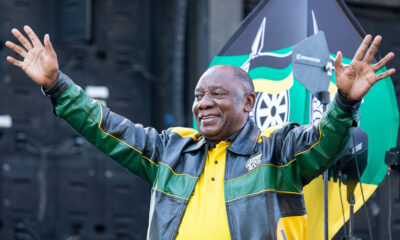

South Africa: President Ramaphosa insists pause in power cuts not linked to election
-


Cut to undersea cable causes internet disruptions across East, Southern Africa
-
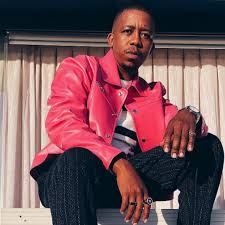

South African actor dies tragically in car accident
-
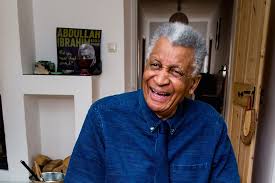

South African Jazz great Abdullah Ibrahim to embark on world tour at age 90
-


S’Africa lengthens troop deployment in Mozambique, Congo DR
Strictly Personal
If I were put in charge of a $15m African kitty, I’d first deworm children, By Charles Onyango-Obbo
Published
4 days agoon
May 13, 2024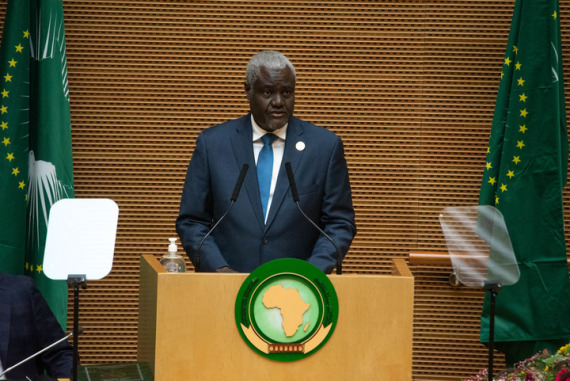
One of my favourite stories on pan-African action (or in this case inaction), one I will never tire of repeating, comes from 2002, when the discredited Organisation of African Unity, was rebranded into an ambitious, new African Union (AU).
There were many big hitters in African statehouses then. Talking of those who have had the grace to step down or leave honourably after electoral or political defeat, or have departed, in Nigeria we had Olusegun Obasanjo, a force of nature. Cerebral and studious Thabo Mbeki was chief in South Africa. In Ethiopia, the brass-knuckled and searingly intellectual Meles Zenawi ruled the roost.
In Tanzania, there was the personable and thoughtful Ben Mkapa. In Botswana, there was Festus Mogae, a leader who had a way of bringing out the best in people. In Senegal, we had Abdoulaye Wade, fresh in office, and years before he went rogue.
And those are just a few.
This club of men (there were no women at the high table) brought forth the AU. At that time, there was a lot of frustration about the portrayal of Africa in international media, we decided we must “tell our own story” to the world. The AU, therefore, decided to boost the struggling Pan-African New Agency (Pana) network.
The members were asked to write cheques or pledges for it. There were millions of dollars offered by the South Africans and Nigerians of our continent. Then, as at every party, a disruptive guest made a play. Rwanda, then still roiled by the genocide against the Tutsi of 1994, offered the least money; a few tens of thousand dollars.
There were embarrassed looks all around. Some probably thought it should just have kept is mouth shut, and not made a fool of itself with its ka-money. Kigali sat unflustered. Maybe it knew something the rest didn’t.
The meeting ended, and everyone went their merry way. Pana sat and waited for the cheques to come. The big talkers didn’t walk the talk. Hardly any came, and in the sums that were pledged. Except one. The cheque from Rwanda came in the exact amount it was promised. The smallest pledge became Pana’s biggest payday.
The joke is that it was used to pay terminal benefits for Pana staff. They would have gone home empty-pocketed.
We revive this peculiarly African moment (many a deep-pocketed African will happily contribute $300 to your wedding but not 50 cents to build a school or set up a scholarship fund), to campaign for the creation of small and beautiful African things.
It was brought on by the announcement by South Korea that it had joined the African Summit bandwagon, and is shortly hosting a South Korea-Africa Summit — like the US, China, the UK, the European Union, Japan, India, Russia, Italy, Saudi Arabia, and Turkey do.
Apart from the AU, whose summits are in danger of turning into dubious talk shops, outside of limited regional bloc events, there is no Pan-African platform that brings the continent’s leaders together.
The AU summits are not a solutions enterprise, partly because over 60 percent of its budget is funded by non-African development partners. You can’t seriously say you are going to set up a $500 million African climate crisis fund in the hope that some Europeans will put up the money.
It’s possible to reprise the Rwanda-Pana pledge episode; a convention of African leaders and important institutions on the continent for a “Small Initiatives, Big Impact Compact”. It would be a barebones summit. In the first one, leaders would come to kickstart it by investing seed money.
The rule would be that no country would be allowed to put up more than $100,000 — far, far less than it costs some presidents and their delegations to attend one day of an AU summit.
There would also be no pledges. Everyone would come with a certified cheque that cannot bounce, or hard cash in a bag. After all, some of our leaders are no strangers to travelling around with sacks from which they hand out cash like they were sweets.
If 54 states (we will exempt the Sahrawi Arab Democratic Republic for special circumstances) contribute $75,000 each, that is a good $4.05 million.
If just 200 of the bigger pan-African institutions such as the African Development Bank, Afrexim Bank, the giant companies such as MTN, Safaricom, East African Breweries, Nedbank, De Beers, Dangote, Orascom in Egypt, Attijariwafa Bank in Morocco, to name a few, each ponied up $75,000 each, that’s a cool $15 million just for the first year alone.
There will be a lot of imagination necessary to create magic out of it all, no doubt, but if I were asked to manage the project, I would immediately offer one small, beautiful thing to do.
After putting aside money for reasonable expenses to be paid at the end (a man has to eat) — which would be posted on a public website like all other expenditures — I would set out on a programme to get the most needy African children a dose of deworming tablets. Would do it all over for a couple of years.
Impact? Big. I read that people who received two to three additional years of childhood deworming experience an increase of 14 percent in consumption expenditure, 13 percent in hourly earnings, and nine percent in non-agricultural work hours.
At the next convention, I would report back, and possibly dazzle with the names, and photographs, of all the children who got the treatment. Other than the shopping opportunity, the US-Africa Summit would have nothing on that.
Charles Onyango-Obbo is a journalist, writer, and curator of the “Wall of Great Africans”. X@cobbo3
Strictly Personal
AU shouldn’t look on as outsiders treat Africa like a widow’s house, By Joachim Buwembo
Published
1 week agoon
May 9, 2024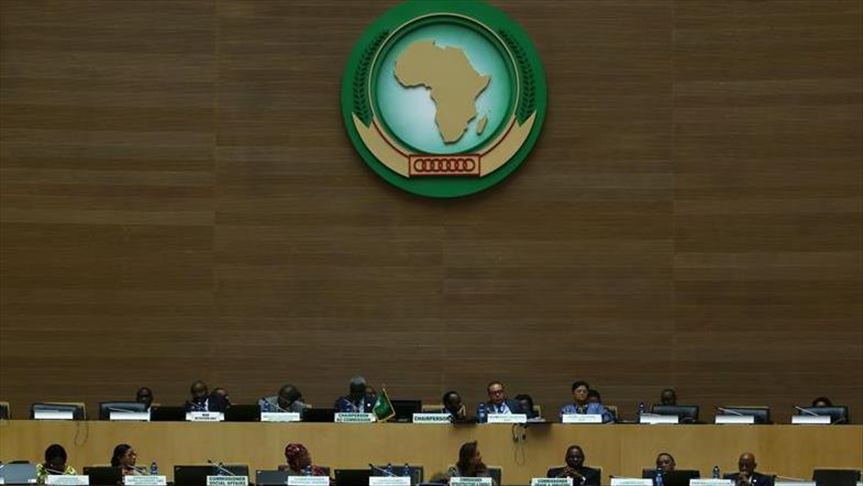
There is no shortage of news from the UK, a major former colonial master in Africa, over whose former empire the sun reputedly never set. We hope and pray that besides watching the Premier League, the managers of our economies are also monitoring the re-nationalisation of British Railways (BR).
Three decades after BR was privatised in the early to mid-nineties — around the season when Africa was hit by the privatisation fashion — there is emerging consensus by both conservative and liberal parties that it is time the major public transport system reverts to state management.
Yes, there are major services that should be rendered by the state, and the public must not be abandoned to the vagaries of purely profit-motivated capitalism. It is not enough to only argue that government is not good at doing business, because some business is government business.
Since we copied many of our systems from the British — including wigs for judges — we may as well copy the humility to accept if certain fashions don’t work.
Another piece of news from the UK, besides football, was of this conservative MP Tim Loughton, who caused a stir by getting summarily deported from Djibouti and claiming the small African country was just doing China’s bidding because he recently rubbed Beijing the wrong way.
China has dismissed the accusation as baseless, and Africa still respects China for not meddling in its politics, even as it negotiates economic partnerships. China generously co-funded the construction of Djibouti’s super modern multipurpose port.
What can African leaders learn from the Loughton Djibouti kerfuffle? The race to think for and manage Africa by outsiders is still on and attracting new players.
While China has described the Loughton accusation as lies, it shows that the accusing (and presumably informed) Britons suspect other powerful countries to be on a quest to influence African thinking and actions.
And while the new bidders for Africa’s resources are on the increase including Russia, the US, Middle Eastern newly rich states, and India, even declining powers like France, which is losing ground in West Africa, could be looking for weaker states to gain a new foothold.
My Ugandan people describe such a situation as treating a community like “like a widow’s house,” because the poor, defenceless woman is susceptible to having her door kicked open by any local bully. Yes, these small and weak countries are not insignificant and offer fertile ground for the indirect re-colonisation of the continent.
Djibouti, for example, may be small —at only 23,000square kilometres, with a population of one million doing hardly any farming, thus relying on imports for most of its food — but it is so strategically located that the African Union should look at it as precious territory that must be protected from external political influences.
It commands the southern entrance into the Red Sea, thus linking Africa to the Middle East. So if several foreign powers have military bases in Djibouti, why shouldn’t the AU, with its growing “peace kitty,” now be worth some hundreds of millions of dollars?
At a bilateral level, Ethiopia and Djibouti are doing impressively well in developing infrastructure such as the railway link, a whole 750 kilometres of it electrified. The AU should be looking at more such projects linking up the whole continent to increase internal trade with the continental market, the fastest growing in the world.
And, while at it, the AU should be resolutely pushing out fossil-fuel-based transportation the way Ethiopia is doing, without even making much noise about it. Ethiopia can be quite resolute in conceiving and implementing projects, and surely the AU, being headquartered in Addis Ababa, should be taking a leaf rather than looking on as external interests treat the continent like a Ugandan widow’s house.
Buwembo is a Kampala-based journalist. E-mail:buwembo@gmail.com
EDITOR’S PICK


Hope for persons with disability, as Muleya shares promising story of inclusivity in governance
Frederick John Muleya, a differently abled person based in Choma town, Southern Province, has shared some insights of changes being...


South Africa: President Ramaphosa signs major health bill two weeks before election
South Africa’s President Cyril Ramaphosa signed a measure into law on Wednesday that promises to offer universal health coverage, hailing...


Burna Boy, Asake, Davido, Tems, other Nigerian stars bag BET nominations
Thursday was a good day for Nigerian music stars, and especially the entertainment industry, as singers Burna Boy, Ayra Starr,...


Ethiopian marathon legend Bekele returns to Olympics after 12-year absence
After a 12-year absence on the international race circuit, Ethiopian marathon legend, Kenenisa Bekele, has announced that he will return...
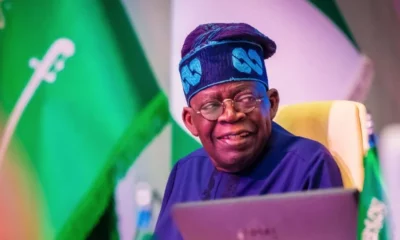

Nigerian govt to open student loan application portal May 24
The Nigerian government has announced that the portal for the long awaited student loan scheme will open on May 24,...


Google relaunches Hustle Academy with AI focus to empower African SMBs
Google has relaunched the 2024 cohort of its Hustle Academy, a programme dedicated to accelerating the growth of small and...
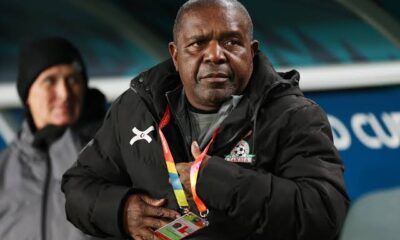

Zambia’s women national team coach face new sexual assault allegation
Zambia women national team coach, Bruce Mwape, is facing new allegations of sexual assault and misconduct at the 2023 Women’s...


China’s Hailiang, Shinzoom to establish vehicle battery installations in Morocco
Hailiang and Shinzoom, Chinese car battery makers, will establish two separate operations in Morocco as the country strives to adapt...


Nigeria targets 10,000MW hydropower through sustainable power project
Nigeria’s Minister of Power, Adebayo Adelabu, says the federal government is targeting10,000 megawatts through its Sustainable Power and Irrigation Project...


Nigeria’s inflation hits 28-year high of 33.69% in April
Nigeria’s consumer inflation reached a 28-year high of 33.69% in April, up from 33.20% in March, according to statistics agency...
Trending
-

 Tech2 days ago
Tech2 days agoLatin America’s biggest payment processor PayRetailers expands into Africa
-

 VenturesNow1 day ago
VenturesNow1 day agoNigeria’s inflation hits 28-year high of 33.69% in April
-
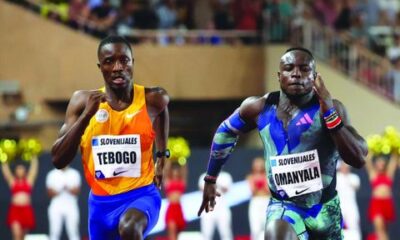
 Sports2 days ago
Sports2 days agoBotswanan Tebogo hits at Kenyan Omanyala over claims of being African sprint king
-

 Metro1 day ago
Metro1 day agoNigeria targets 10,000MW hydropower through sustainable power project


